#Protein Supplement
Text
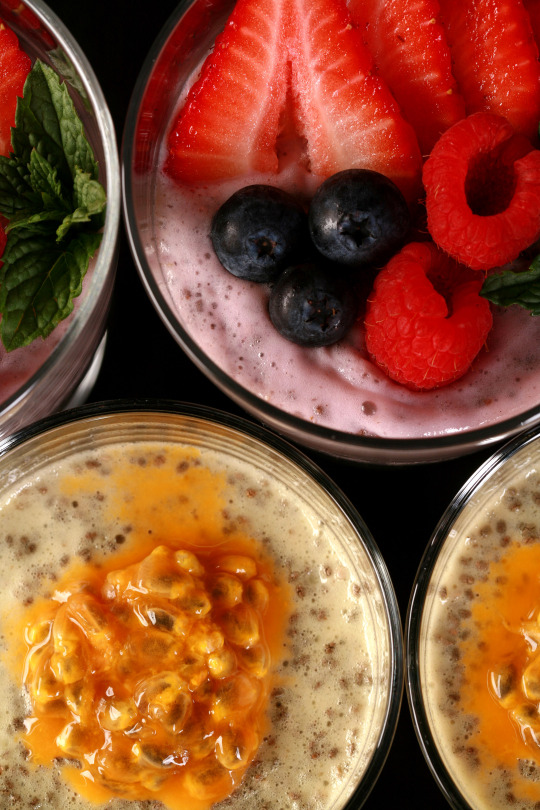
#protein#protein powder#protein supplement#revolution nutrition#gluten free recipes#recipes#food#breakfast#gluten free dessert
5 notes
·
View notes
Text
I had to relearn what I knew about protein, and through what I learned, I realized we don't actually need that much protein. There's this overemphasis on protein, particularly animal protein. And what I've learned now, at the end of the day, it's not how much protein you're consuming, but how much you're actually assimilating. Because when you're under this kind of protein spell, which was where I was, I forgot about everything else. I forgot about, you know, what about my antioxidants, what about my fiber? I just did not think of that.
- Luke Tan in Let Us Be Heroes - The True Cost of Our Food Choices (2018)
#q#quotes#let us be heroes#the true cost of our food choices#true nourishment#protein myths#protein supplement#fitblr#wfpb#whole food plant based#nutrition#food centric herbalism#food industry#leveling up#holistic leveling up#rda#recommended daily allowance#food science#standard american diet#that girl#green juice girl#sidewalkchemistry
3 notes
·
View notes
Text
Are You Vegan .How to get Protein- No problem, Solution Is Here

Hello everyone! today’s blog topic is very interesting Protein Vegan Diet .Are you considering adopting a vegan lifestyle but concerned about getting enough protein? You’re not alone! Protein is important nutrient that helps build and repair breakage tissues, and plays a crucial role in maintaining a healthy body. Many people believe that the only way to get enough protein is through animal-based sources, but that’s not the case. In fact, a well-planned vegan diet can provide all the protein your body needs. In this blog post, we’ll explore a variety of vegan protein sources, including legumes, nuts, seeds, grains, soy products, and vegetables. We’ll also discuss the importance of consuming essential amino acids and maintaining a balanced vegan diet. By the end of this post, you’ll have a better understanding of how to get the protein you need to support a healthy, plant-based lifestyle.
Brief Explanation of Veganism
Veganism is a lifestyle that seeks to exclude all forms of animal exploitation and cruelty, including in the food we eat, the products we use, and the entertainment we consume. Vegans follow a plant-based diet that excludes all animal products, such as meat, dairy, eggs, and honey, and instead relies on fruits, vegetables, grains, legumes, nuts, and seeds for nourishment. This way of life is driven by ethical, environmental, and health concerns, and aims to promote a more compassionate and sustainable world.
Read Full Article on
#nutrition#dietician#vegan protein#fitness#protein rich diet#protein rich food#protein supplement#protein smoothie#legumes#protein#veganism#protein sources#nuts and seeds#grain#soy protein ingredients market#soy protein#vegetables
2 notes
·
View notes
Text
Nutrela Protein Supplements | Boost Strength & Muscle Health

Elevate your fitness journey with Nutrela Protein Supplements. Formulated to support muscle health and strength, these high-quality proteins are perfect for athletes, bodybuilders, and anyone looking to enhance their daily nutrition. Shop now for plant-based and whey protein options!
0 notes
Text
Plant Protein vs Animal Protein: Which One is Healthier?

Protein is one of the most vital components of our diet; it performs the role of building and repairing tissues, making enzymes necessary for various daily activities, and maintaining good health. Although all this is done by both plant proteins vs animal proteins, now the question about which is better for health has not come to an end. Knowing the differences between plant and animal proteins and their impact on your health will help you make better choices regarding which is a good protein for you.
Understanding Plant and Animal Proteins:
Plant Protein: Plant proteins are derived from legumes, nuts, seeds, grains, and vegetables. They are considered incomplete because they lack one or more essential amino acids that the human body cannot manufacture from other amino acids. All the essential amino acids that the human body needs can, however, easily be obtained by consuming a variety of plant-based foods.
Animal Protein: Animal proteins are considered complete proteins, which consist of all the amino acids necessary for the body in the correct proportions. They are predominantly found in meats, poultry, fish, eggs, milk, and dairy products. This makes it a simpler source of protein for daily nutritional needs to be met with less of a variety of food sources.
Health Benefits of Plant Protein
1. Lower Chronic Disease Risk: Several studies have documented that diets high in plant-based protein are associated with lower risks for chronic diseases such as heart disease, diabetes, and some types of cancer. Plant Protein Powder generally contains less saturated fat and cholesterol, which may contribute to increased cardiovascular risk. In addition, plant-based diets are more likely to be rich in fiber, antioxidants, and phytochemicals, which help maintain health and prevent illness.
2. Better Digestion: Most plant proteins are rich in dietary fiber. Fiber is needed for digestion and the health of your intestines. It regulates bowel movements and prevents constipation. It also provides for a healthy gut microbiome. A diet rich in plant-based foods can also prevent diverticulitis and IBS.
3. Weight Management: High fiber intake in plant-based proteins helps retain satiety, hence controlling appetite and therefore calorie intake. This likely also lowers the risk of obesity and its complications, such as type 2 diabetes. Moreover, the calorie density of most plant-based foods is very low; hence, a person can easily keep his or her weight balanced without going hungry while eating nutrient-dense meals.
4. Lower Inflammation: Plant proteins are rich in antioxidants and anti-inflammatory compounds which help in lowering inflammation within the body. Chronic inflammation is certainly a forerunner to most diseases, including heart disease, cancer, and autoimmune disorders. With a greater intake of plant-based protein in your diet, you will be better equipped to protect the body from the negative effects of inflammation.
Health Benefits of Animal Protein
1. Full Amino Acid Profile: The first of the key benefits associated with animal protein is a complete amino acid profile for easier utilization by the body. This will be most important in those people who have a higher protein requirement, such as athletes or children with growing potential and convalescing individuals after illness or surgery. Animal proteins are food sources that provide all the essential amino acids from just one source.
2. Rich in Nutrients: Animal-based proteins are rich in nutrients like vitamin B12, iron, zinc, and omega-3- important for different human body processes. For example, vitamin B12 is available in animal products; it plays an important role in the functioning of the nervous system and the production of blood cells. Most omega-3 fatty acids are found mainly in fatty fish, which play a vital role in matters to do with brain health and improvement in inflammatory conditions.
3. Muscle Growth and Maintenance: Animal proteins are an excellent source with high biological values and are easily absorbed and used by the body for muscle maintenance and growth. This is the main reason why animal protein has found an important place in the diet of professional athletes and heavy weightlifters who aim to increase and repair their torn and ripped muscles.
Make Your Choice: Which is Healthier?
Whether a plant or animal protein is a healthier choice depends on factors relating to the individual's dietary needs, health goals, and moral values.
1. Cardiovascular Health: In this regard, plant proteins for the most part outmatch animal proteins when it comes to heart health. They are low in saturated fat content and cholesterol, which are considered to be two of the risk factors for heart disease. Substitution of some animal proteins with the plant-based alternative shifts associations toward decreased levels of cholesterol and improved risk factors in cardiovascular health.
2. Weight Management and Digestive Health: In weight management and digestive health, plant-based proteins are unmatched by the competition. Since most plant proteins are high in fiber, they will help in weight management and digestion. However, if one needs a slightly higher protein intake, like in the case of athletes, a complete amino acid profile and nutrient density from animal proteins could help in a big way.
3. Environmental and Ethical Considerations: Beyond health reasons, many are shifting to plant proteins due to environmental and ethical concerns. In a very general sense, diets based on plants use less environmental resources, and create fewer greenhouse gases than animal farming. Ethical reasons, especially about animal welfare, are another driving factor why many make the transition to plant-based protein sources.
Conclusion:
Both plant and animal proteins carry unique health benefits; the importance between them depends on the needs and ideas of the individual. Protein Supplements are associated with a decreased danger of chronic diseases, good digestion, and body weight management. Animal proteins, on the other hand, provide a more complete spectrum of amino acids and are rich in many essential nutrients. Having a balanced diet that includes a variety of proteins, predominantly derived from plants, helps achieve one's daily nutritional goals and supporting general well-being.
0 notes
Text
The Role of Bodybuilding Supplements in Achieving Your Fitness Goals

Achieving your fitness goals can be a daunting journey, but bodybuilding supplements can provide the boost you need to reach new heights. Whether you're a seasoned athlete or just starting, understanding the benefits and proper use of supplements is crucial. Let's dive into the world of bodybuilding supplements, online bodybuilding supplements, pre-workout supplements, and protein supplements for the gym to see how they can help you achieve your fitness aspirations.
What Are Bodybuilding Supplements?
Bodybuilding supplements are products designed to enhance your workout performance, aid in muscle recovery, and support overall fitness goals. They come in various forms, including powders, capsules, and drinks, each formulated to target specific aspects of your fitness regimen. Think of them as the extra fuel your body needs to perform at its best.
Types of Bodybuilding Supplements
Understanding the different types of bodybuilding supplements can help you choose the right ones for your needs:
1. Protein Supplements - Protein supplements are essential for muscle growth and repair. They come in various forms, such as whey, casein, and plant-based proteins.
2. Pre-Workout Supplements - Pre-workout supplements provide an energy boost and enhance focus, helping you maximize your gym sessions.
3. Creatine - Creatine increases muscle strength and improves high-intensity exercise performance.
4. BCAAs (Branched-Chain Amino Acids) - BCAAs support muscle recovery and reduce exercise-induced muscle soreness.
5. Fat Burners - Fat burners aid in weight loss by increasing metabolism and reducing appetite.
Pre-Workout Supplements: Your Gym Companion
Imagine having a reliable gym companion that boosts your energy, focus, and endurance. That's precisely what pre-workout supplements do. They often contain ingredients like caffeine, beta-alanine, and nitric oxide boosters to prepare your body for an intense workout. Think of them as the spark that ignites your workout engine.
Protein Supplements: Building Blocks of Muscle
Protein supplements are the building blocks of muscle. They provide the necessary amino acids that your body needs to repair and grow muscle tissues. Whether you prefer whey protein for its quick absorption or plant-based options for dietary preferences, protein supplements ensure your muscles get the nutrients they need to thrive.
Benefits of Bodybuilding Supplements
Incorporating bodybuilding supplements into your fitness routine offers numerous benefits:
1. Enhanced Performance - Supplements like pre-workouts and creatine boost your energy and strength, allowing you to push harder during workouts.
2. Faster Recovery - BCAAs and protein supplements speed up muscle recovery, reducing downtime between workouts.
3. Muscle Growth - Protein and creatine supplements support muscle growth and development.
4. Fat Loss - Fat burners and certain protein supplements aid in weight management by increasing metabolism and reducing cravings.
How to Choose the Right Supplements
Choosing the right supplements can be overwhelming, but here are some tips to help you make an informed decision:
1. Identify Your Goals - Determine whether your primary goal is muscle gain, fat loss, or overall performance enhancement.
2. Read Labels - Look for supplements with transparent labeling and research-backed ingredients.
3. Consult a Professional - Seek advice from a fitness or healthcare professional to ensure the supplements align with your needs and health conditions.
Online Bodybuilding Supplements: Convenience at Your Fingertips
In today's digital age, purchasing bodybuilding supplements online offers unparalleled convenience. Online platforms provide a wide range of products, detailed descriptions, customer reviews, and often better pricing. Plus, they deliver right to your doorstep, saving you time and effort.
Potential Risks and Side Effects
While bodybuilding supplements offer many benefits, it's essential to be aware of potential risks and side effects:
1. Overconsumption - Taking too many supplements can lead to adverse effects, such as digestive issues, kidney strain, and more.
2. Allergic Reactions - Some individuals may experience allergies to specific ingredients in supplements.
3. Misleading Claims - Not all supplements are created equal. Be cautious of products with exaggerated claims and unverified benefits.
Natural Alternatives to Supplements
If you prefer natural alternatives, you can achieve similar benefits through whole foods and proper nutrition. For example:
1. Lean Meats and Legumes - These are excellent sources of protein for muscle growth.
2. Coffee or Green Tea - Natural sources of caffeine can provide an energy boost before workouts.
3. Fruits and Vegetables - Rich in vitamins and antioxidants, they support overall health and recovery.
FAQs
1. What are the best protein supplements for muscle growth?
Whey protein is popular for its quick absorption and high amino acid content. Plant-based options like pea or soy protein are great for those with dietary restrictions.
2. Can pre-workout supplements cause any side effects?
Yes, pre-workout supplements can cause side effects such as jitteriness, insomnia, and digestive issues, especially if they contain high levels of caffeine.
3. Are bodybuilding supplements necessary for beginners?
While not necessary, supplements can enhance beginners' results when combined with a balanced diet and proper workout routine.
4. How can I safely incorporate supplements into my fitness routine?
Start with recommended doses, consult a professional, and monitor your body's response to ensure safe and effective use.
5. What should I look for when buying supplements online?
Look for reputable brands, check customer reviews, and ensure the website has secure payment options and transparent product information.
Conclusion
Bodybuilding supplements can play a significant role in achieving your fitness goals by enhancing performance, supporting muscle growth, and aiding in recovery. Whether you opt for online bodybuilding supplements or prefer natural alternatives, understanding their benefits and risks is crucial. Remember, supplements are just that—supplements to a healthy diet and consistent workout routine. With the right approach, you can make informed choices that propel you towards your fitness aspirations.
#Muscle building supplements#Bodybuilding supplement online#Bodybuilding supplements shop#Protein supplement#Protein powder supplement#Pre-workout supplement
0 notes
Text

0 notes
Text
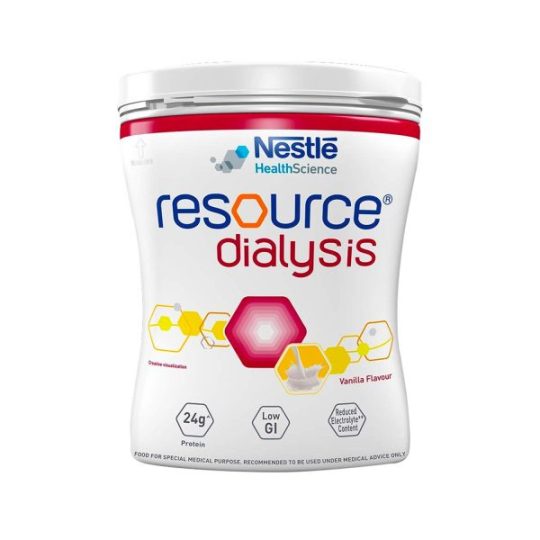
Nestle Resource Dialysis Vanilla flavour
Nestle Resource Dialysis Vanilla Flavour is a special formulation for dietary management of individuals on maintenance haemodialysis.
https://www.cureka.com/shop/nutrition/supplements/nestle-resource-dialysis-vanilla-jar/
#Dialysis nutrition#Renal support#Liquid nutrition#Vanilla supplement#Nutritional supplement#Kidney-friendly#Dialysis care#Protein supplement#Vitamin-enriched#Dietary support#Nestle
0 notes
Text
Boba Protein Powder in Fitness Culture
In the dynamic landscape of fitness and wellness, innovation continually drives the evolution of dietary supplements and nutritional aids. One such innovation that has been gaining traction among health enthusiasts is boba protein powder—a unique blend that combines the indulgent flavors of bubble tea with the muscle-building benefits of protein supplementation. Let's delve into the world of boba protein powder and explore its emergence as a popular choice for fitness enthusiasts seeking a delicious and convenient way to meet their nutritional goals.
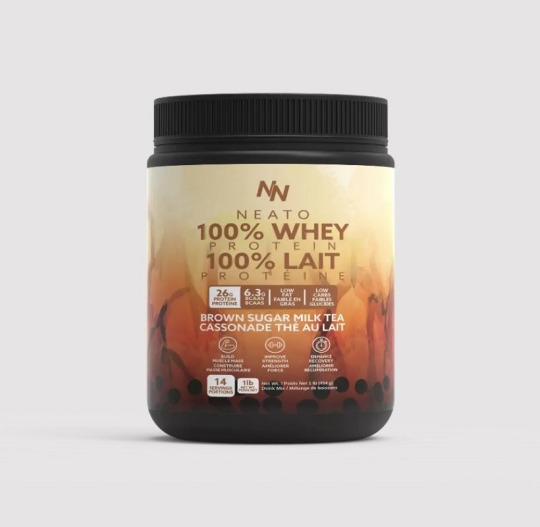
Boba protein powder represents a fusion of two seemingly disparate worlds: the vibrant, indulgent flavors of boba tea and the functional benefits of protein supplementation. At its core, boba protein powder embodies the ethos of balance and moderation, offering a flavorful alternative to traditional protein supplements without sacrificing nutritional integrity. By harnessing the popularity of bubble tea and infusing it with high-quality protein sources, manufacturers have created a versatile and appealing product that resonates with a diverse audience of fitness enthusiasts.
One of the key attractions of boba protein powder lies in its versatility and convenience. Unlike traditional protein supplements, which often come in bland or uninspiring flavors, boba protein powder offers a range of delicious options inspired by the eclectic world of bubble tea. From classic favorites like taro and matcha to innovative combinations like Thai milk tea and honeydew, the flavor offerings are as diverse as they are enticing, catering to a variety of taste preferences and dietary requirements.
Moreover, boba protein powder provides a convenient way for fitness enthusiasts to meet their daily protein needs without sacrificing flavor or enjoyment. Whether used as a post-workout recovery shake, a midday pick-me-up, or a guilt-free indulgence, boba protein powder offers a satisfying and delicious alternative to traditional protein sources. With its blend of whey, soy, or plant-based proteins, it delivers a complete amino acid profile essential for muscle repair and growth, making it an ideal choice for athletes and active individuals alike.
Beyond its nutritional benefits, boba protein powder has also emerged as a cultural phenomenon, reflecting the global appeal of bubble tea and its influence on popular culture. As the popularity of boba tea continues to soar worldwide, manufacturers have capitalized on the trend by incorporating its signature flavors and textures into innovative protein formulations. This convergence of fitness and food culture has created a unique synergy that resonates with consumers seeking both physical nourishment and sensory pleasure.
Furthermore, boba protein powder has the potential to democratize access to protein supplementation, making it more accessible and appealing to a broader audience. By tapping into the widespread popularity of bubble tea and infusing it with the functional benefits of protein, manufacturers have created a product that transcends traditional fitness demographics, appealing to a diverse range of consumers across age, gender, and cultural backgrounds.
In conclusion, boba protein powder represents a convergence of flavor, function, and culture in the realm of fitness and nutrition. By combining the indulgent flavors of bubble tea with the muscle-building benefits of protein supplement, manufacturers have created a versatile and appealing product that resonates with health-conscious consumers worldwide. Whether enjoyed as a post-workout recovery shake, a flavorful snack, or a guilt-free indulgence, boba protein powder offers a delicious and convenient way to nourish the body and tantalize the taste buds. As the fitness landscape continues to evolve, boba protein powder stands poised to emerge as a staple in the dietary arsenal of health enthusiasts everywhere.
0 notes
Text
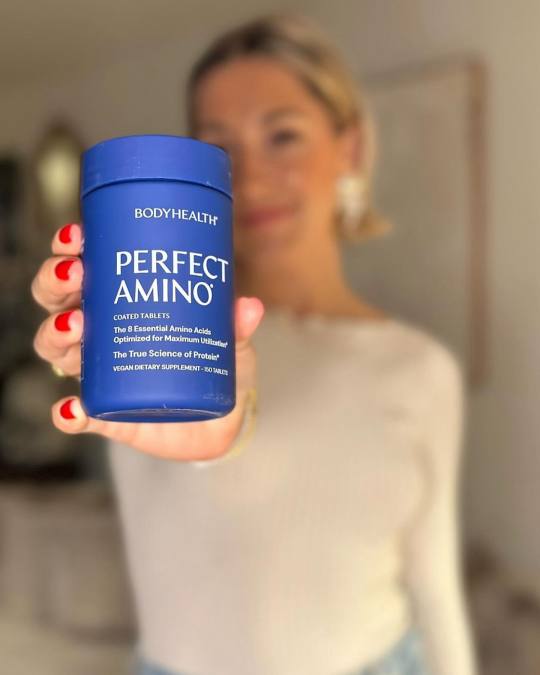
Protein deficiency is often something you are aware of but can't quite identify. So what's the solution?
PerfectAmino is an amino acid supplement that is 99% utilized by the body to make protein. No other form of protein comes close!
0 notes
Text
Protein Supplements for Elderly: A Guide to Choosing the Right Supplement
As we age, maintaining adequate nutrition becomes increasingly important for overall health and well-being. Protein, in particular, plays a crucial role in supporting muscle health, immune function, and overall vitality.
For many seniors, meeting daily protein requirements can be challenging through regular meals alone. This is where protein supplements come into play. In this guide, we'll walk you through the basics of choosing the right protein supplement for the elderly.

Why is protein important for seniors, and how does it benefit their health?
Protein is a vital nutrient that becomes even more critical as we age. It helps in preserving muscle mass, which tends to decline with aging. Adequate protein intake supports bone health, wound healing, and the production of essential enzymes and hormones. As seniors may face challenges in consuming enough protein through meals, supplements offer a convenient and effective way to bridge this nutritional gap.
What are the different types of protein supplements, and how do they differ?
There are various types of protein supplements for elderly, each with its unique characteristics. Whey protein, derived from milk, is easily digestible and rich in essential amino acids. Plant-based options like pea protein are suitable for those with dairy allergies or dietary preferences. Collagen protein supplements support joint and skin health, while protein blends combine multiple sources for a comprehensive amino acid profile. Choosing the right type depends on individual needs and dietary restrictions.
Are all protein supplements easy to digest, and how do they impact absorption?
Digestibility varies among different protein sources. Whey protein, for example, is quickly absorbed by the body, making it an excellent choice for a fast protein boost. Plant-based proteins may contain fiber, which can slow down absorption but offers additional health benefits. Consider individual preferences and any existing digestive issues when selecting a protein supplement to ensure optimal absorption and minimal discomfort.
youtube
Source: Youtube : (Hamilton Health Sciences)
Do protein supplements provide other essential nutrients, or should I take separate supplements?
Some protein supplements come fortified with additional nutrients, such as vitamins and minerals. While this can be beneficial, especially for seniors with specific nutritional needs, it's essential to assess whether these additions align with individual dietary requirements. If additional nutrients are needed, consulting a healthcare professional for personalized advice is advisable.
I have dietary restrictions; can I still find a suitable protein supplement?
Absolutely. Protein supplements come in various forms, including whey, plant-based, and collagen options, accommodating a range of dietary preferences and restrictions. For those with lactose intolerance or dairy allergies, plant-based or lactose-free protein supplements are available. Always read product labels carefully and choose a supplement that aligns with individual dietary needs.
Should I consult my doctor before taking a protein supplement?
Yes, it's advisable to consult with a healthcare professional, especially if you have underlying health conditions or are taking medications. They can provide personalized advice based on your health status and guide you on the appropriate type and dosage of protein supplement. This ensures that your protein intake complements your overall health plan.
Conclusion
Incorporating protein supplements into the diet of seniors can be a valuable strategy to meet nutritional needs and support overall health. Understanding the importance of protein, considering different types, evaluating digestibility, checking for additional nutrients, accommodating dietary restrictions, and consulting with healthcare professionals are key steps in choosing the right protein supplement. By making informed choices, seniors can maintain their vitality, promote muscle health, and enjoy a better quality of life as they age.
0 notes
Text
Gold Whey Protein: A Muscle-Building Powerhouse for Fitness Enthusiasts
What’s in the Gold Whey Protein? A Peek into Its Pure Goodness
As a premium health supplement with premium ultra-filtered whey protein concentrate, Gold Whey Protein steals the show. With an amazing 25 grams of easily digested Whey per serving and low fat and cholesterol content, this nutritional powerhouse is essential for promoting muscle growth and helping quick recovery after intense…
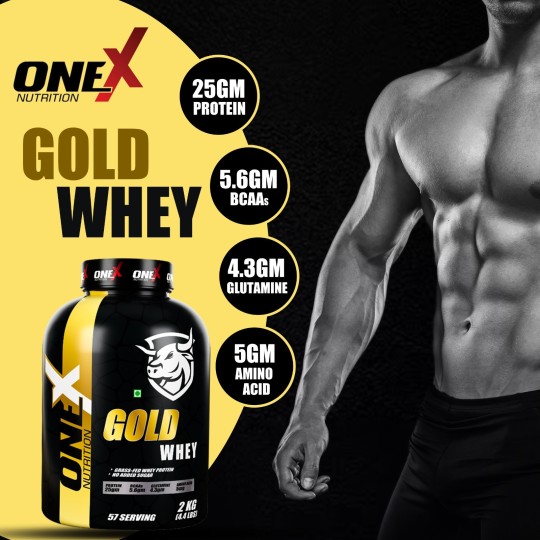
View On WordPress
#healthy protein#One-X Nutrition#organic protein#Platinum protein#protein powder#protein supplement#weight gainer protein#weight loss protein#whey protein
0 notes
Text
Protein powder is a sensory nightmare😫
Does anyone know how to make pea protein powder texture not so horrible? I added half of the recommended amount of protein powder to milk and blended it. The texture was absolutely disgusting! I really need a protein supplement because I'm unable to get enough protein due to sensory issue.
Please help!
#protein#protein powder#protein shake#protein supplement#sensory processing disorder#sensory issues#food aversion#autism#autistic#actually autistic#asd#autistic adult#help#food#nutrition
0 notes
Text
Boost your health and wellness with natural, plant-based protein.
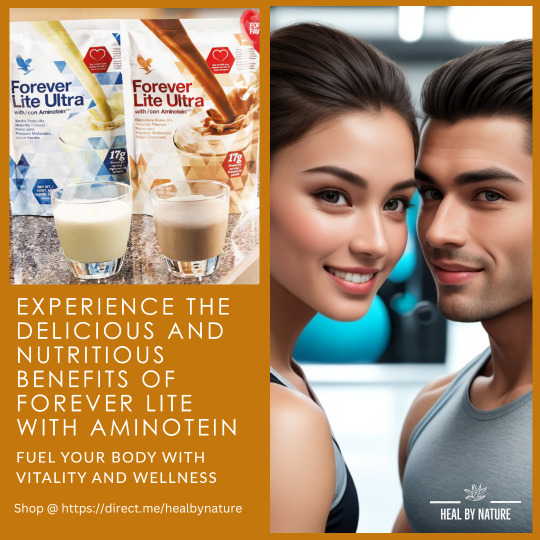
Looking for a delicious and nutritious way to boost your energy and wellness? Try Forever Lite With Animotein, the ultimate plant-based protein (soy) shake that combines the power of nature and science. Animotein is a patented blend of enzymes that helps your body digest and absorb the protein from soy, pea and rice. Forever Lite With Animotein also contains vitamins, minerals, antioxidants and fiber to support your overall health. Whether you need a quick breakfast, a post-workout recovery or a satisfying snack, Forever Lite With Animotein is the perfect choice for you. Comes in vanila or chocolate shake mix. Order yours today and discover the difference of Forever Lite With Animotein!
Get yours today on HEAL BY NATURE
DM us if you need any assistance.
Shipping: to over 160 countries
0 notes
Photo

Protein Peanut Butter Chocolate Chip Cookies Recipe
Tasty cookies with a protein supplement, perfect for people who work out and are grossed out by protein shakes. Can substitute flavored supplements for a fruity twist.
0 notes